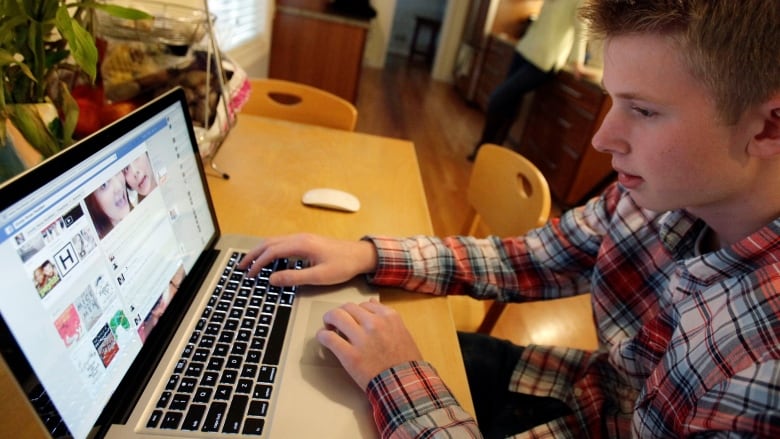Study links social media use, lack of shut-eye among youth
Study authored by CHEO doctor looked at association between social media use and sleep duration

A new study authored by a doctor at the Children's Hospital of Eastern Ontario suggests even one hour ofsocial media use per day can have a negative impact on a young person'ssleep.
Dr. Jean-PhillippeChaput, part of the Healthy Active Living and Obesity team at CHEO, was a lead author of the study, published Wednesday by the journalActa Paediatrica.
We do see an important association between the use of social media and not enough sleep in young people.- Dr. Jean-PhillippeChaput, CHEO
Researchers examined the association social media use and sleep duration among 5,242 subjects between the ages of11 to 20 who responded to the 2015 Ontario Student Drug Use and Health Survey. The survey is a province-wide school-based study of middle and high school students.
Respondents were asked about their use of social media sitesincluding Facebook, Twitter, Instagramand MySpace.
Researchers found that 63.6 per cent ofthe young people surveyed slept less than the recommended amount of time, while 73.4 per cent reported they used social media for at least one hour a day.
"Use of social media and screens can disrupt a person's circadian rhythms and cause increased alertness," Chaputsaid.
"We do see an important association between the use of social media and not enough sleep in young people."
Kids 11 to 17 most sleep-deprived
The survey found that sleep duration varied significantly between age groups, with those between 11 to 17 getting the fewest hours of shut-eye. It also found 16.1 per cent of respondents usesocial media for at least five hours perday.
Researchers found that although females spent significantly more time using social media than males, the relationship between the use of social media and sleep duration did not differ by sex.
The majority of respondents nearly 80 per cent did not meet the physical activity recommendations of 60 minutes of moderate-to-vigorous movement per day.
The article noted the problem of insufficient sleep among adolescents has grown over the last few decades, and has been attributed to such factors asartificial light, caffeine use, laxbedtime rules and the increasingavailability of information and communication technology.
The Canadian Society of Exercise PhysiologyCanadarecommends children ages six to 13 sleep between nineand 11 hoursper night, teens 14 to 17 get betweeneight and 10 hours, and those 18 and over get seven to nine hours of solid shut-eye.












_(720p).jpg)


 OFFICIAL HD MUSIC VIDEO.jpg)
.jpg)



























































































